Exploring Denmark
Our Travel GuideWay up north in Europe, just south of Scandinavia lies this little, beautiful country. Even though it has long, harsh winters with very short days, it also gets warm summers with long days, with the longest day being more than ten hours longer than the shortest day. Having visited the country on numerous occasions and always enjoying ourselves, it is easy to see why Danes are so happy. Denmark is considered to be one of the most economically and socially developed countries in the world. Danes enjoy a high standard of living and the country ranks high in education, health care, protection of civil liberties, democratic governance, LGBT equality, prosperity, and human development. The country ranks as having the world’s highest social mobility, a high level of income equality, the lowest perceived level of corruption in the world, one of the world’s highest per capita incomes, and one of the world’s highest personal income tax rates.
Denmark is a very environmental-friendly country—in fact, it is the most climate-friendly country in the world. The city harbors around the country are clean enough to swim in, and the tap water is clean enough to drink!
Denmark, along with other Nordic countries, has been labeled the happiest country in the world numerous times already. Why not join in and enjoy these great things in Denmark?
Denmark at a Glance
Currency: The official currency for the Kingdom of Denmark is the Danish Krone (DKK). The Krone is currently pegged to the Euro.
Visa: U.S. Citizens may enter for Denmark for up to 90 days for tourist purposes without a visa. Further useful information, in English and Danish, can be found on the Danish Immigration Service website.
Language: The Kingdom of Denmark has only one official language, Danish, the national language of the Danish people, but there are several minority languages spoken, namely Faroese, German, and Greenlandic.
- Sight Seeing 85%
- Cost 90%
- Ease of Travel 85%
- Activities 75%
The world owes Denmark quite a bit. The Little Mermaid, Lego and Google Maps (yes, two Danish brothers invented it) are just some things. Visit Denmark – the land of the Vikings – and see why the Danes are so happy.
Top Experiences in Denmark
Lego®
The famous LEGO® brick was invented in Billund, Denmark in 1949, by Ole Kirk Christiansen. Now, you can visit the original Legoland® in Billund, and learn more about this favorite toy’s history at the Lego® House.
Legoland
Opened in 1968, this was the first Legoland ever. It now covers about forty-five acres, and is filled with thousands of Lego models, as well as Lego-themed attractions. It is divided into nine themed areas: Duplo Land, Imagination Zone, Legoredo Town, Adventure Land, Ninjago World, Knight’s Kingdom, Mini Land, Pirate Land, and Polar Land.
Miniland features 1:20-scaled Lego® models of sights all over Denmark and landmarks from over the world, including the Billund Airport, Amsterdam, the Swedish Gota Canal, Mount Rushmore, and the US Capitol Building!
There are many other attractions in Legoland, including roller coasters, water rides, kiddie rides, and other shows. The Lego Top observation tower gives a great view of the entire park, as well as of the Billund Airport and the Billund Airport Lego model.
In addition, the Legoland Billund Resort offers Lego-themed lodging options.
Lego® House
There are many great experiences at the Lego® House.
In the Experience Zones, you can create your own models with an unlimited number of bricks; you can build your own race cars and test them on the track, or build a new Lego sea creature and let it loose in the digital aquarium.
At the History Collection, you will learn a lot about Lego’s history; you will also find hundreds of the most iconic Lego sets! At the Masterpiece Gallery there are breathtaking models made by adult Lego fans.
Vikings
When I think of Denmark, one of the first things that comes to my mind is Vikings. The Vikings from Denmark, Norway, and Sweden raided, traded, and settled parts of Europe from the 8th to the 11th century. There are still several Viking remains in Denmark, including these two remarkable attractions:
Viking Ship Museum
Five permanent exhibitions are built around five Skuldelev ships, which were recovered 20 km north of Roskilde. The remains of these ships were excavated in 1962 and brought to the museum. There are guided tours of this museum, as well as other exhibitions, such as the boat yard.
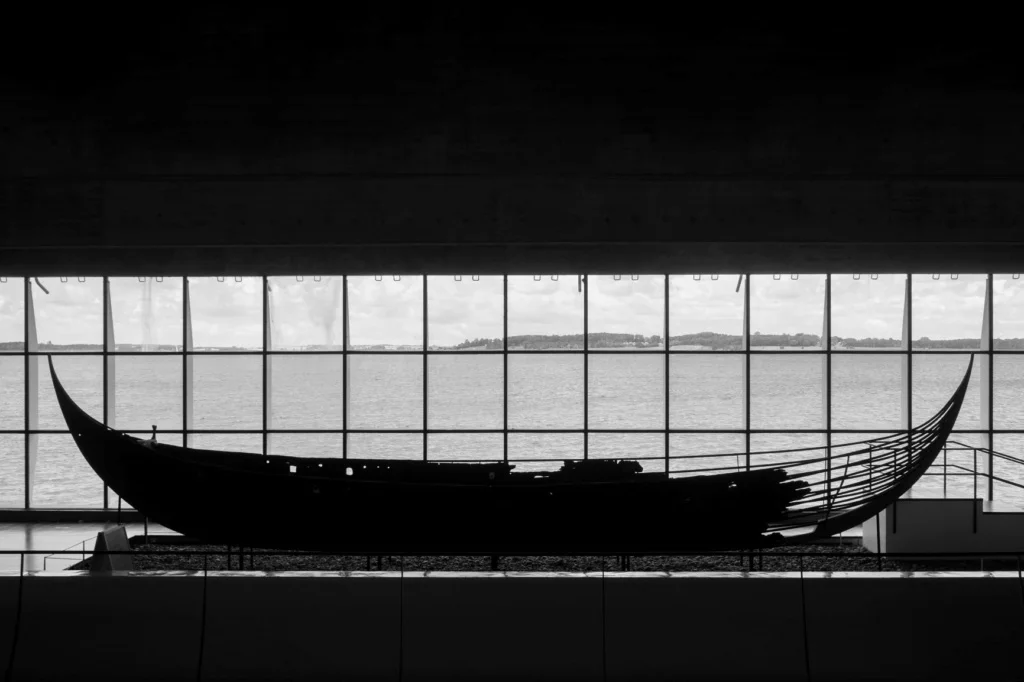
One of the ships at the Viking Ship Museum
Bork Viking Harbor
Located on the western coast of Denmark, this place takes you back some one-thousand years in history; It is a living history museum, with a reconstructed Viking-Age harbor settlement. With the reconstructed buildings, including the long houses and a church, ships, history reenactments, and craftmanship, you will feel right in the middle of the Viking Age! Here, you will be able to feel part of this history; you can make your own jewelry or bake your own flatbread. Children can dress up as Vikings, sail small Viking ships in the moat, and test their strength in the Viking playground.
Castles and Palaces
There are also several castles and gorgeous palaces that are worth visiting:
Amalienborg Palace
At Amalienborg Palace, the main residence of the Danish royal family, you can se the changing of the guard. If you visit for the Queen’s birthday, or the Royal Run, you may get a glimpse of the Queen! This palace is a must-see for any royal history lover!
Frederiksborg Castle
Less than one hour from Copenhagen lies this beautiful castle, which is now home to the Museum of National History. This castle is one of the most famous castles in Denmark; it is built on three islands, surrounded by a lake and beautiful gardens. For a visit rich in history, architecture, and beautiful gardens, make sure to stop by Frederiksborg Castle!
Kronborg Castle
This castle was built on the east coast of the Danish Zealand Island, where the Swedish mainland is the closest. This castle (perhaps better known now as ‘Hamlet’s Castle’) was brought to international fame in the 1600’s by Shakespeare, when he situated his play here. Now a UNESCO World Heritage Site, it is definitely worth it to visit this castle!
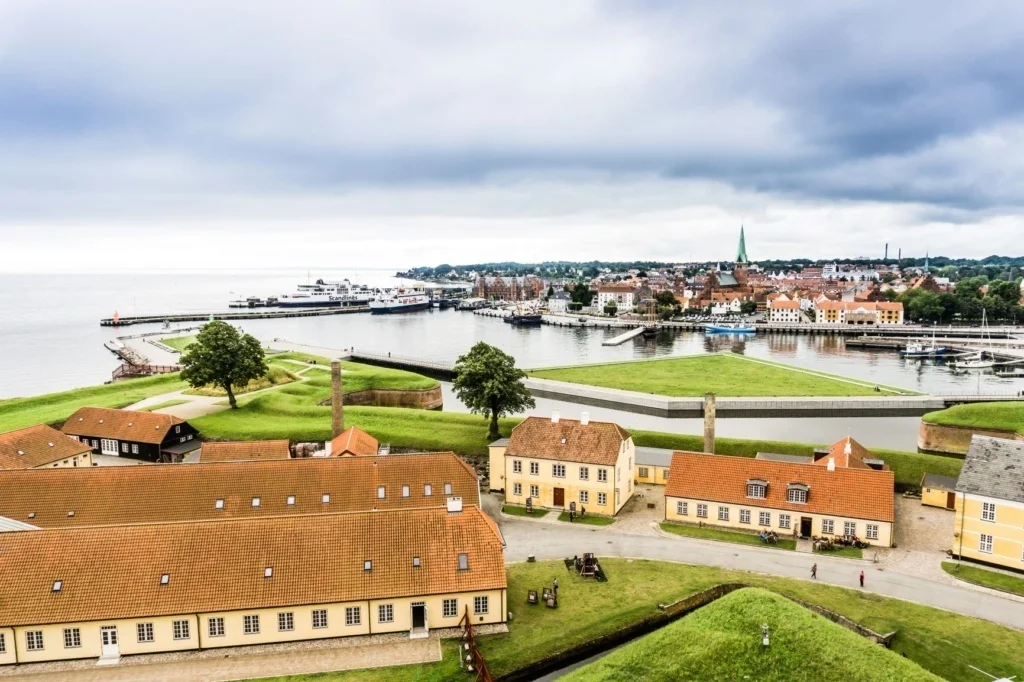
Head to Kronborg and visit Hamlet’s (Kronborg) Castle.
Koldinghus
Throughout its more than 700 years of existence, Koldinghus has had a big role in Denmark’s history. First, it served as part of the border defenses; later, as a royal residence, and as the seat of local representatives of the Danish central government. The castle was destroyed partially by a fire in 1808; however, recently, some restoration programs have rebuilt it. Now, as a museum of cultural history, and a hub for cultural activities, it is an extremely popular attraction!
Rundetaarn (The Round Tower)
King Christian IV built this tower as an observatory in 1601. This observatory is now open to the public. To get to the top of this tower, you need to go up a spiral ramp, which is about 210 mts. long.
Cities
There are many beautiful cities to visit in Denmark. Some great ones include: Aarhus, Aalborg, Odense, and Copenhagen.
Copenhagen
Denmark’s capital city is located on Zealand Island, to the east of the Danish mainland, and very near Sweden. Copenhagen is filled with interesting and fun stuff to do!
One spot you do not want to miss in Copenhagen is Tivoli Gardens, the second oldest amusement park in the world. It is filled with beautiful architecture, historic buildings, beautiful gardens, as well as thrilling rides and food. Even though it is more than 175 years old, it has been kept modern; in 2014, the Vertigo ride, which turns you upside down at 100 km/h, was voted the best ride in Europe!
Another top attraction in Copenhagen is Nyhavn, the famous, picturesque harbour, now lined up with good food and music!
The Little Mermaid is arguably the most iconic of the Copenhagen attractions. This bronze sculpture was inspired by Danish Hans Christian Andersen’s novel by that title.
The largest shopping area in Copenhagen, Strøget, is one of the largest pedestrian streets in Europe!
For history lovers, The National Museum walks you through the Viking Age, the Middle Ages, the Renaissance, and modern Danish history.
Other attractions include the Copenhagen Zoo, Den Blå Planet (the national aquarium of Denmark), the Experimentarium, Bakken (the oldest amusement park in the world), the Zoological Museum, the Natural History Museum of Denmark, The King’s Garden, and some of the attractions we already mentioned: Amalienborg Palace, The Round Tower, Kronborg Castle.
If you want to access several of the attractions in a few days, you could consider the Copenhagen Card. With it, you get free transportation within the city, as well as free entry to many of these attractions!
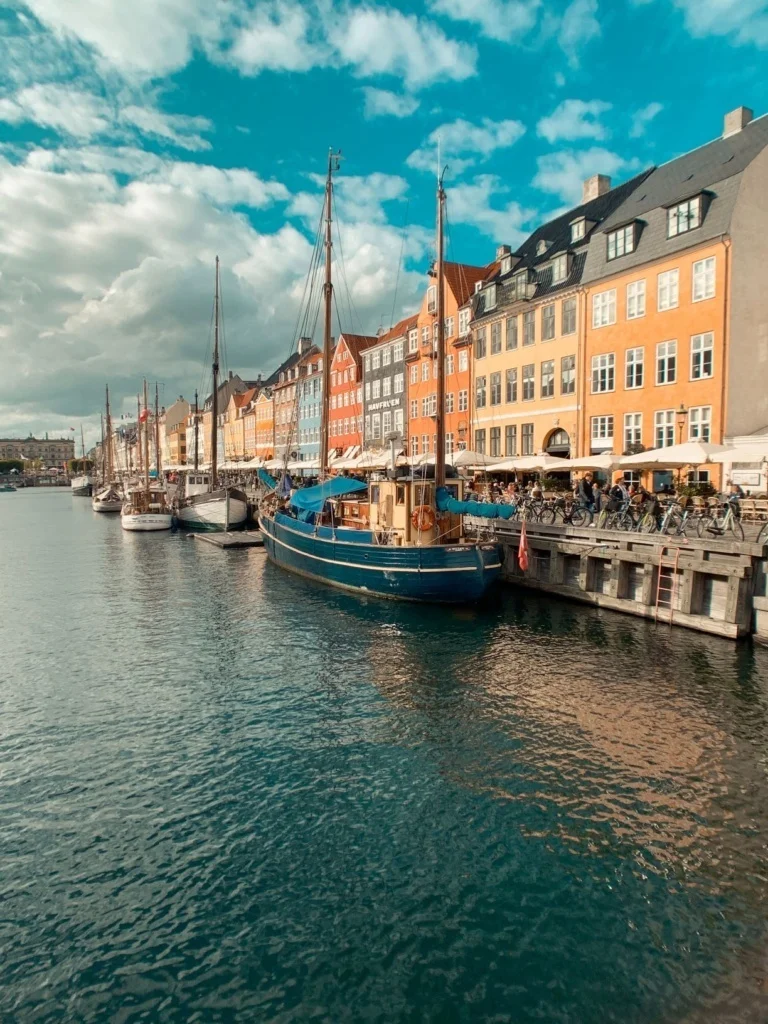
Copenhagen is like a dream and fairy tale rolled into one.
Cycling
One of the most popular ways to travel in Denmark, cycling is a great activity to do on your visit there!
Denmark has many great bicycle routes spanning over 12,000 total kilometers. There are long national routs, like the 820 km.-long Baltic Sea Cycle Route, which runs through fjords, the archipelago around South Fyn, and the cliffs on Møn.
If you don’t want to take a longer bicycle tour like this one, you could just move around the towns and cities on a bike, which is how many Danes move around!
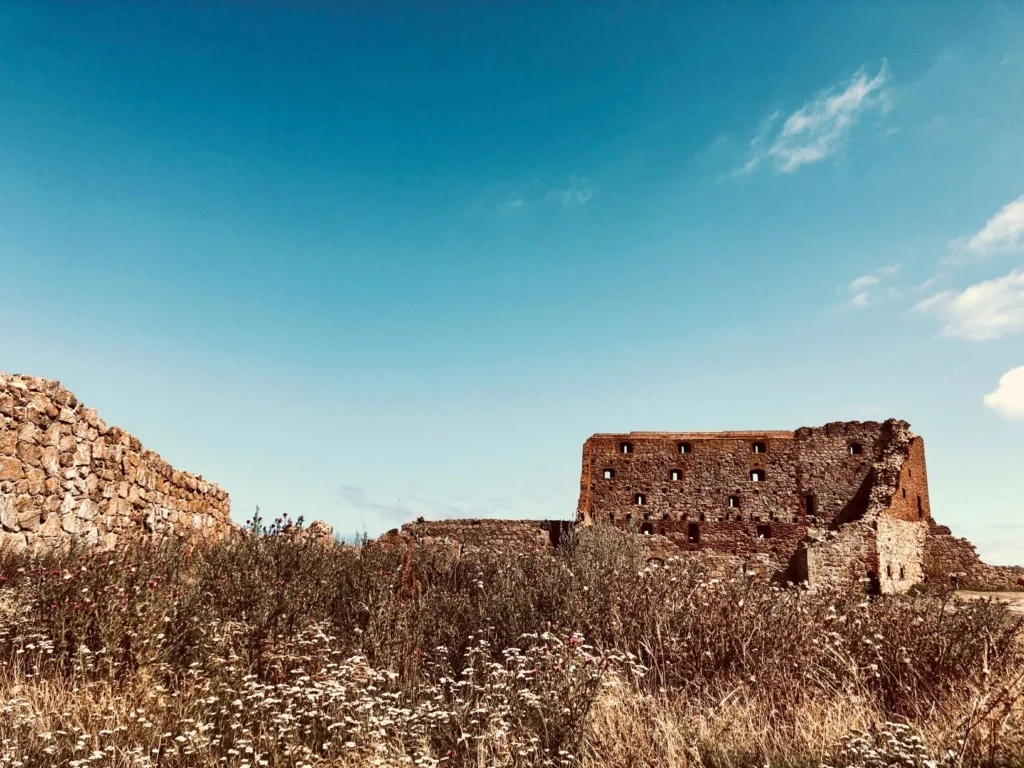
Don’t skip this small country. Denmark has a rich history dating back to the Vikings and before.
Nature
Aside from all the history and cultural treasures, Denmark also has great natural beauty.
Thy National Park
The oldest national park in Denmark, this rugged wilderness is located on the coast near the north of Denmark. You can explore through sand swept forests, awesome dunes, and the beaches by hiking or biking more than 200 kilometers of trails. The park is free and open all day, every day! Thy National Park is home to beautiful wildlife too, featuring the Red Deer and seals.
There are special shelters for camping around the park. Thy is a great spot for hiking, biking, stargazing, and camping!
Møns Klint
The 128-meter chalk cliff is filled with flora and fauna that do not live in any other part of Denmark. Due to the high calcium content in the rocks, there are about 20 species of wild orchids in the area! The calcium also gives the water its characteristic blue-green hue.
Jægersborg Deer Park (Dyrehaven)
At this park, you will be able to get up close to beautiful sika and fallow deer. You are allowed to feed the animals fresh carrots and apples. There are many picnic tables where you can sit down to relax. The park is open from 8 am until sunset; admission is free.
Grenen—the colliding seas
Grenen is Denmark’s northernmost point, where two seas, the Skagerrak and Kattegat, meet. Here you can stand with one foot in each sea and watch the two seas collide. Due to the strong currents, swimming is not allowed in this area. Grenen is a great place for bird-watchers, as it is the place with the highest number of observed bird species in all of Denmark! It is also a great place to observe sea mammals such as porpoises, common seals, grey seals, dolphins, whales, and even orcas!
There are other attractions near Grenen, including the small Skagen Bunker Museum and the Grenen Art Museum.
Since it is rich in both history and natural beauty, Denmark is a great destination for all kinds of travelers! If you are ever touring Europe, be sure to stop by this charming country, and visit some of these awesome attractions! Or, if you are planning a trip, why not come to Denmark? You will surely fall in love with all the sights and experiences this country has to offer!
Denmark
Our Travel Blog

Discovering Kenya’s Natural Wonders: An Epic Safari Itinerary
Embark on a thrilling adventure through Kenya’s breathtaking landscapes and encounter its magnificent wildlife. From the vast plains of the Maasai Mara to the stunning peaks of Mount Kenya, this epic safari itinerary will immerse you in the wonders of nature. Get ready to witness the circle of life unfold before your eyes.
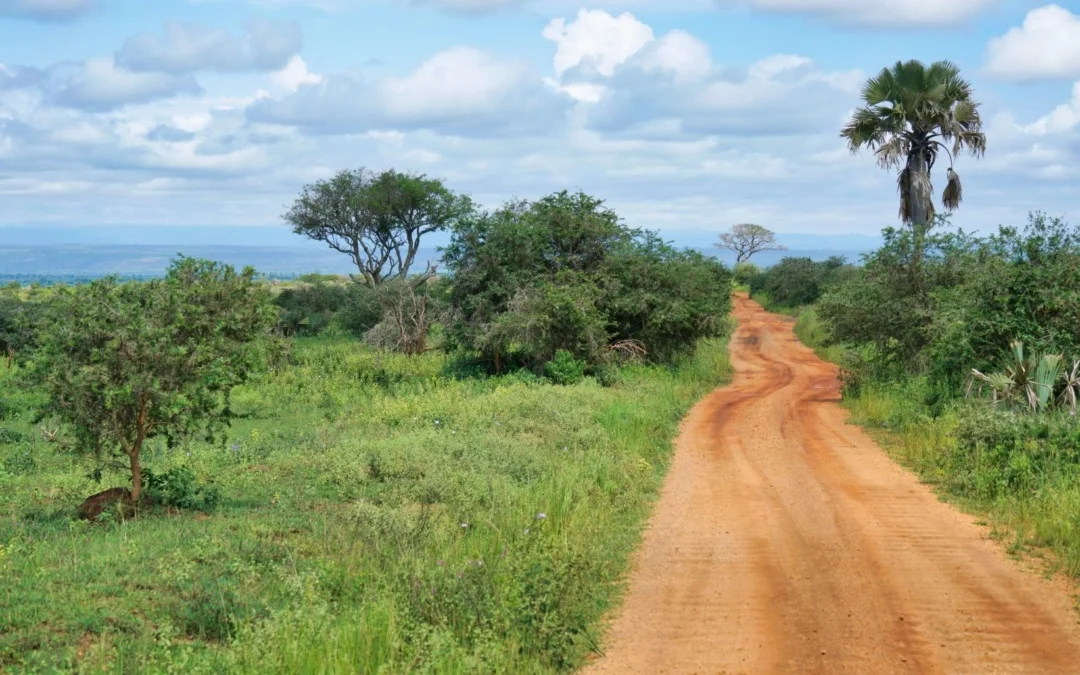
Exploring the Untouched Beauty: 5 Must-Do Activities in Uganda
Embark on a Ugandan adventure and witness the raw beauty of its landscapes. Trek through misty jungles to observe mountain gorillas, cruise the Nile at Murchison Falls, spot tree-climbing lions in Queen Elizabeth Park, marvel at Lake Bunyonyi’s serenity, and hike the snow-capped Rwenzori Mountains. Uganda’s untouched splendor awaits your discovery.

The Human Connection: Why We Should Care About People We Meet on Our Travels
“The Human Connection” explores the profound impact of human interactions during travels. It emphasizes the importance of embracing local cultures, understanding diverse perspectives, and forming meaningful connections. This post encourages readers to see beyond tourist spots and delve deeper into the heart of the places they visit, through the people they meet.

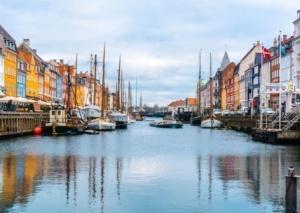

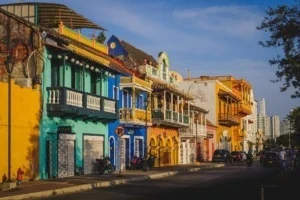
0 Comments